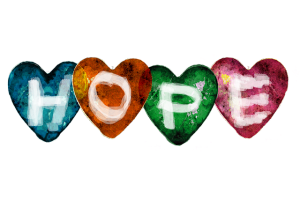
New Alzheimer’s Diagnosis: Reactions and Feelings
A new Alzheimer’s diagnosis is an emotional and life-altering experience. Someone who has just received a new Alzheimer’s diagnosis, or a diagnosis of any other form of dementia, can be profoundly affected.
The reactions and feelings of individuals upon hearing such a diagnosis can vary widely based on their personality, life experiences, support systems, and understanding of the disease.
Here are some common emotions and reactions people who have just received a new Alzheimer’s diagnosis might experience:
Shock and Disbelief: Even if someone has suspicions about their memory or cognitive abilities, hearing a formal diagnosis can be jarring. It might take time for the reality to sink in.
Denial: Some individuals might refuse to accept the diagnosis, believing there’s been a mistake or hoping that symptoms will go away on their own.
 Fear and Anxiety: Concerns about the future, the progression of the disease, loss of independence, and the potential burden on loved ones can be overwhelming. Individuals might worry about forgetting cherished memories or not recognizing family members.
Fear and Anxiety: Concerns about the future, the progression of the disease, loss of independence, and the potential burden on loved ones can be overwhelming. Individuals might worry about forgetting cherished memories or not recognizing family members.
Sadness and Grief: A diagnosis can lead to mourning the anticipated loss of one’s current way of life, abilities, and future plans. It’s a grief for the life they knew and the changes that lie ahead.
Anger and Frustration: It’s not uncommon to feel anger towards the situation, the perceived unfairness, the very idea of losing their driver’s license, and even anger towards oneself.
Questions like “Why me?” might arise.
Relief: Paradoxically, some individuals feel a sense of relief. If they’ve been struggling with symptoms for a while without understanding the cause, a diagnosis provides a name to their experiences and can validate their feelings.
Determination: Some people react by wanting to learn as much as possible about the disease, seeking treatments, and making lifestyle changes that might slow the progression.
Isolation: The stigma associated with dementia can lead some individuals to withdraw from social activities or avoid sharing their diagnosis with others.
 Hope: With the ongoing research and advancements in the field of neurology, some individuals hold onto hope for better treatments, interventions, or even a cure in the future.
Hope: With the ongoing research and advancements in the field of neurology, some individuals hold onto hope for better treatments, interventions, or even a cure in the future.
Concern for Family: Individuals might worry about the genetic implications of this new Alzheimer’s diagnosis and how it is going to impact their children or how their condition might emotionally and financially impact their loved ones.
It’s essential to recognize that these feelings can change over time, and individuals might experience a mix of emotions simultaneously.
Getting support from loved ones, counseling, and joining support groups can be invaluable in navigating the complex emotions associated with a new Alzheimer’s diagnosis.
Check out more interesting articles here.
The Montessori Alzheimer Center offers conferences and training for practitioners and caregivers.





